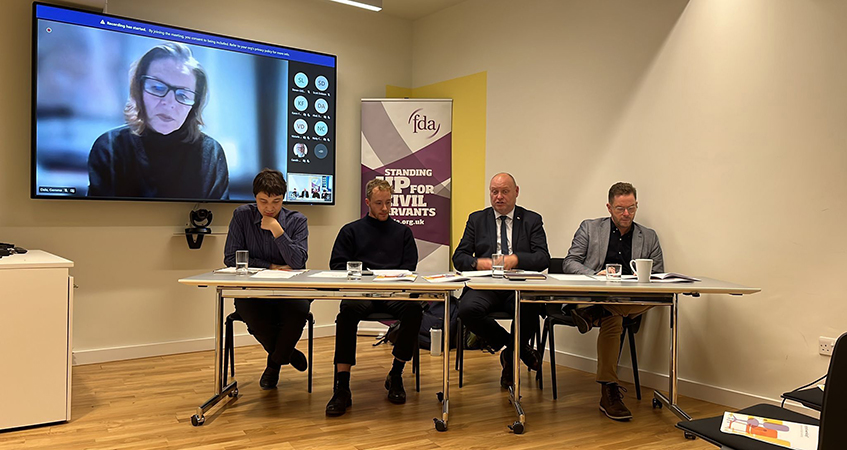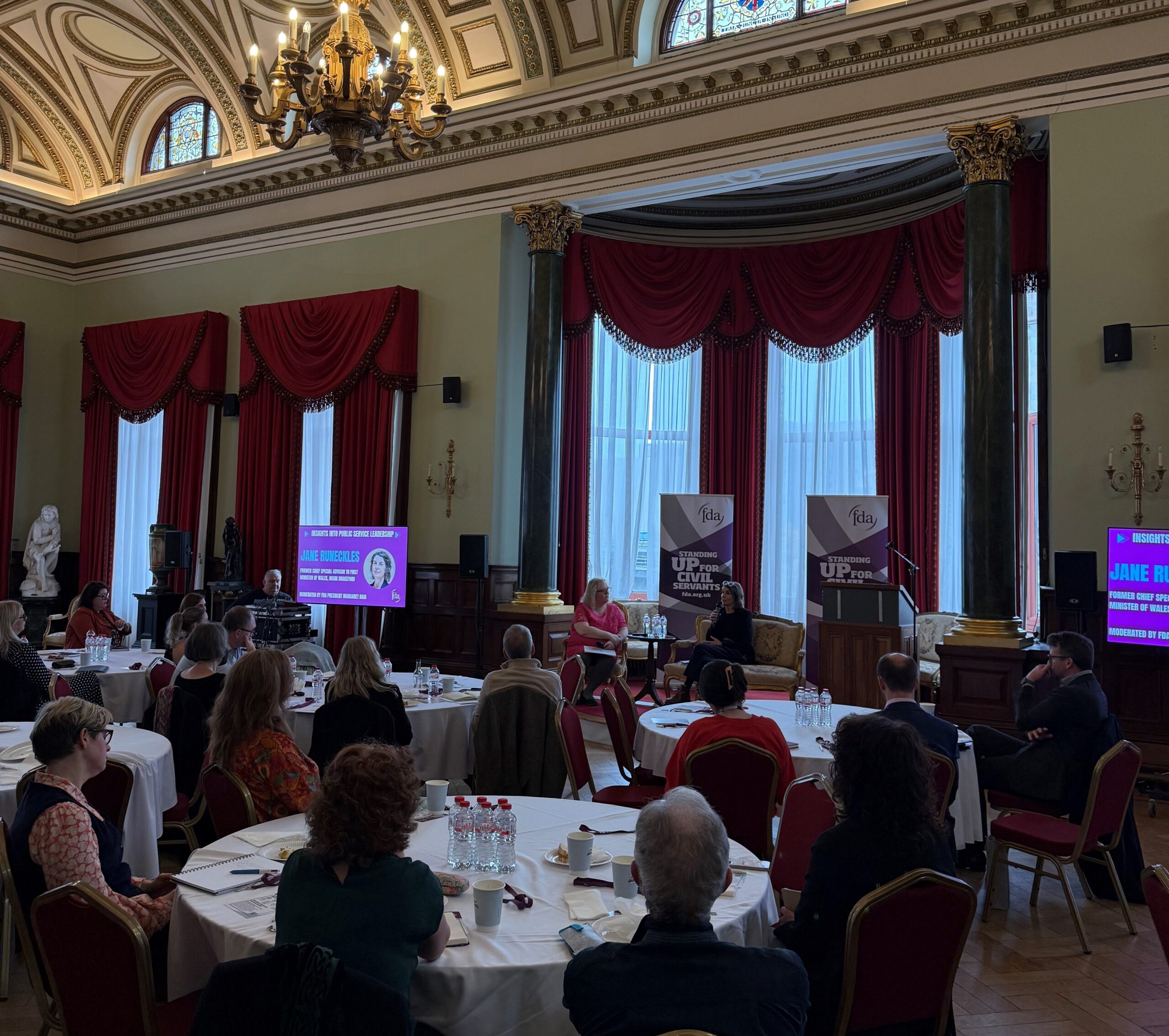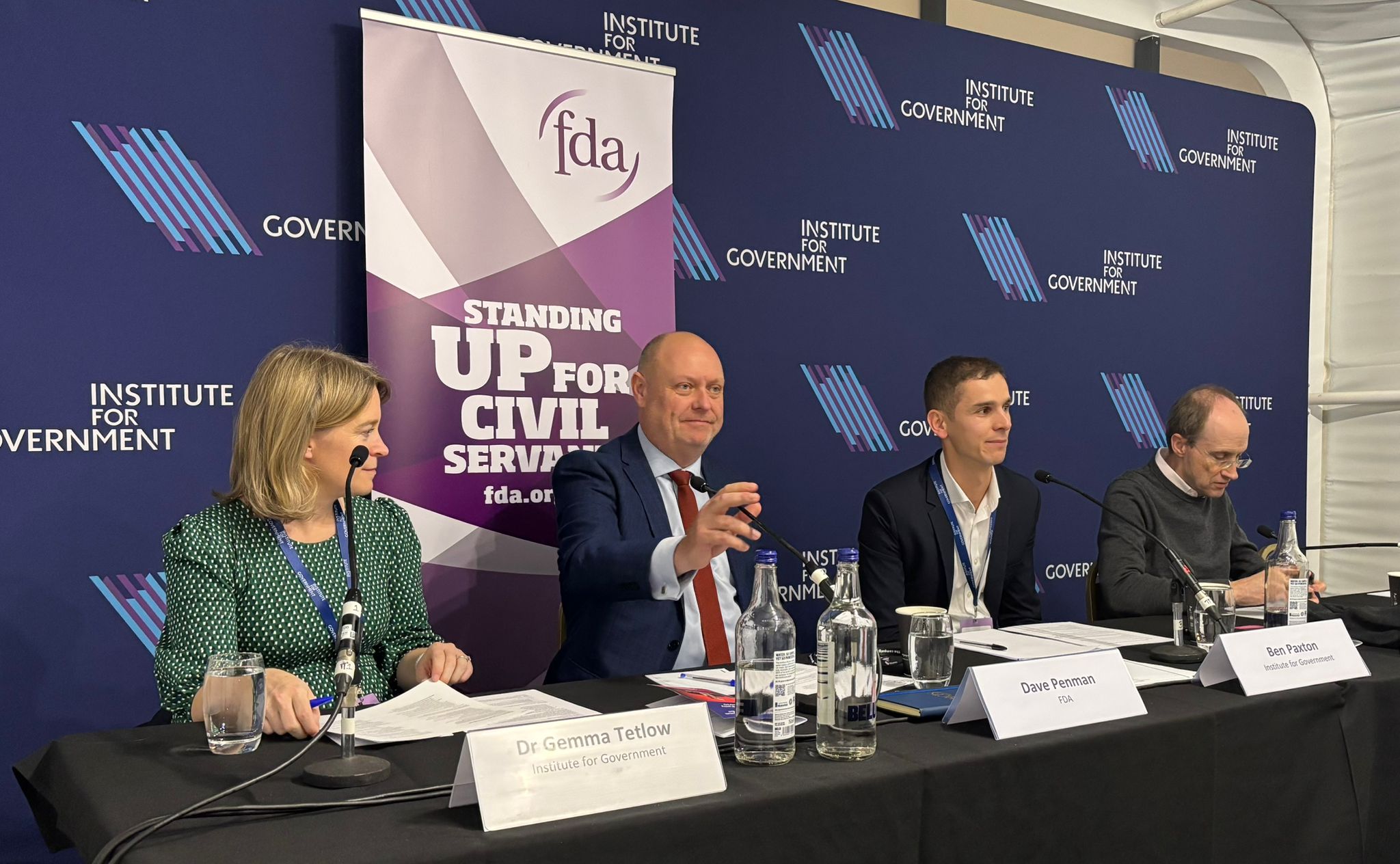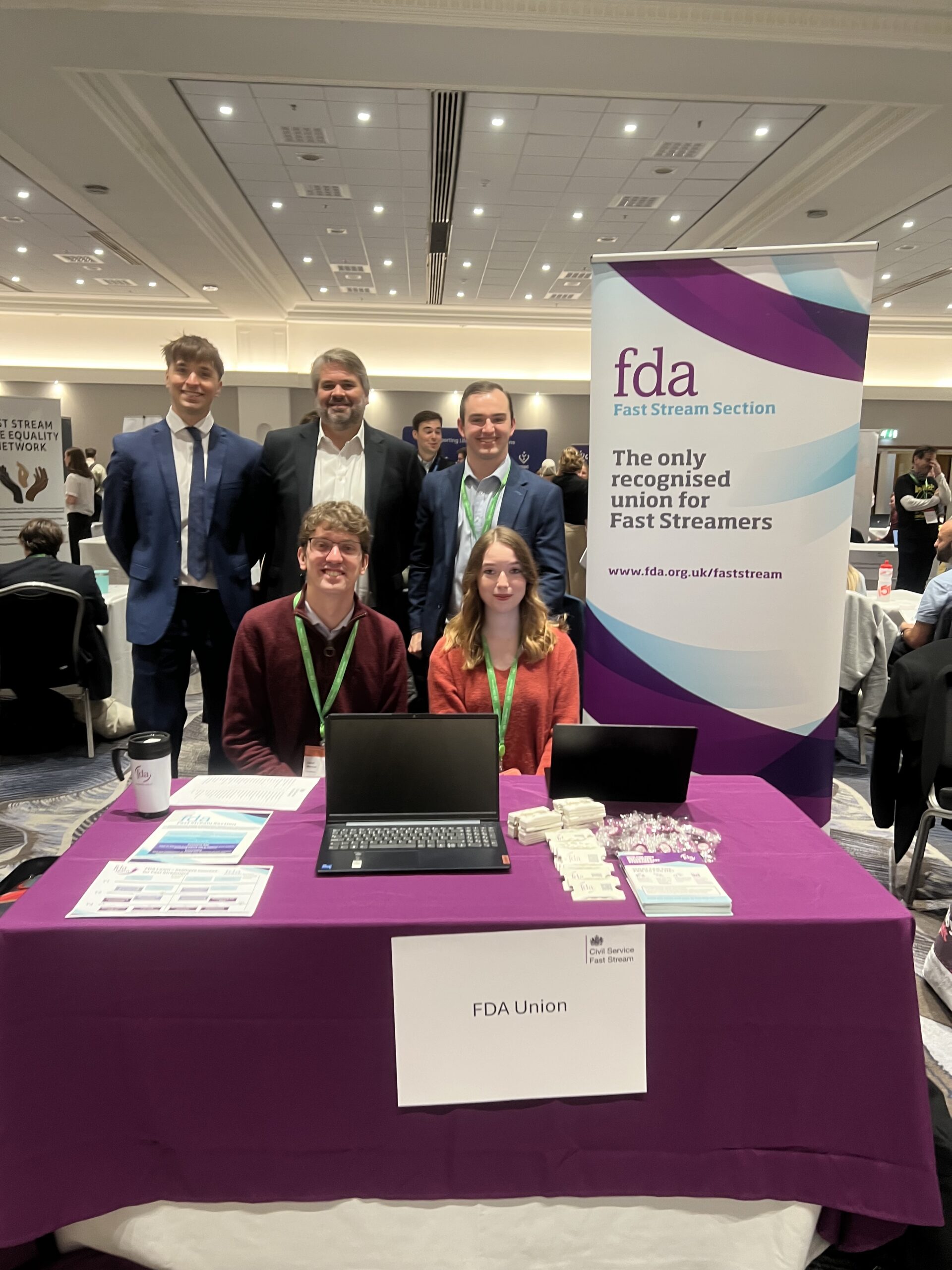Launch of “is hybrid working?”, an FDA report
As we launch our new report looking at hybrid working in the civil service, the FDA’s Intern Euan Stock reflects on his time leading the project and discusses the key lessons we can draw, while we also share details of our hybrid launch event and the results of exclusive FDA-commissioned polling.

Writing for Public Service Magazine at the beginning of my internship, I wrote about how proud I was to be part of the FDA, and outlined my excitement at the chance to be involved in the union’s work looking at the future of hybrid working. The dismay with which I had watched ministers continue to denigrate civil servants only strengthened my resolve to do right by them in my report.
Writing this report has given me the opportunity to not only articulate why the government’s position is misguided and could harm civil servants, but also to construct a broader case against their hostility to hybrid-working. You can read the full findings in the report itself, but it is clear that, while hybrid working no doubt has challenges – not least the lack of office experience and interaction, particularly for young people, and the tendency towards an “always on” working culture – the drawbacks were largely outweighed by the benefits.
Overwhelmingly, FDA members reported that hybrid working had worked well for them, with 71% saying it had made them more productive. There is clearly little appetite to return to the working patterns of the past, with 87% suggesting they would like to continue working 60% of their time at home. Yet while the clear majority of FDA members report that their work-life balance has improved as a result of hybrid working, there remains a pervasive long-hours culture – with 60% reporting that the working of excessive hours is a problem in their organisation. The report therefore calls on the government to look at ways to better protect and support employees, to drive a cultural change to combat the issue of excessive working hours, and to use hybrid working as a tool of regeneration and driver of equality.
The most illuminating and interesting part of my time at the FDA has undoubtedly been speaking to members themselves. Conducting two focus groups was a highlight, and having the chance to hear members’ nuanced and passionate views in these sessions not only widened my perspective of the issue, but has also gone a long way to enriching the final report. As a result, I hope that you will find that it covers the issues that matter to you and is grounded in your experiences.
On top of collating the thoughts of members, the report has also attempted to synthesise polling data and a wealth of research into a cohesive whole, and there was certainly the potential that the sheer sprawl of the project could have left me overawed and overwhelmed. That it didn’t is largely due to the great support that I have received at the FDA, and I am thankful to everyone here for making me feel welcome and having faith in me to carry out such a large project.
FDA polling highlights benefits of flexibility
As part of our study of hybrid working, we wanted to gauge the opinion of the public as well as FDA members working in public services. We therefore commissioned Public First to carry out exclusive polling looking at attitudes towards both hybrid and remote working, and the civil service.
The polling was comprised of two main strands. Firstly, a poll of a nationally representative sample of 2009 adults in the UK, and secondly, a poll of a representative sample of 542 ‘red wall’ voters.
Highlights of the findings include:
- 49% of respondents worked from home at least on occasion, and among ‘red wall’ respondents, this rises to 53%.
- 66% of those who do work from home said they find it easier to focus compared to the office, and 62% said they were more productive.
- 69% said working from home had a positive impact on their wellbeing.
- While people were more likely to respond to emails out of work hours, 74% reported an improved work-life balance when home working.
- On the specific question of civil servants returning to the office, 72% of respondents (rising to 77% in among ‘red wall’ voters) agreed that there are bigger issues in government than where civil servants are based.
- 51% said they did not personally care where civil servants work, rising to 53% among red wall respondents.
Penman called for the government to ensure that “the civil service has a competitive advantage in a tight labour market by offering market-leading flexible working” and to recognise that the issue of where a civil servant’s desk is based was simply not a priority for voters.
To find out more and to read the full report.
FDA hybrid event launches new report
In November, the FDA officially launched our new report with a hybrid event, with FDA members joining us both in person at our head office and online, as a panel of guests discussed the findings of our report.
The event was chaired by FDA General Secretary Dave Penman, who was joined by report author FDA Intern Euan Stock, senior HR professional and lecturer Gemma Dale, Chief Executive of Investors in People Paul Devoy, and Head of Research at the thinktank Bright Blue, Anvar Sarygulov.
The panel considered the lessons learned through the pandemic, the benefits and challenges of hybrid working, and what the future world of work might look like. FDA members also had the opportunity to question our expert panel and share their experiences of hybrid and remote working.
Our panel looked at how the success of hybrid working for organisations was based on good implementation and recognising the need for better training for managers and a more coherent approach, rather than ad-hoc informal arrangements. The panel also considered the need for a change in attitude to what work is, with Devoy concluding that it was time to “stop measuring inputs and start measuring outputs”.
Related News
-

FDA’s inaugural Insights into Public Service Leadership conference takes place in Belfast
The FDA Northern Ireland section held the inaugural ‘Insights into Public Service Leadership’ half-day conference and networking on Thursday 16 October 2025 for members and non-members in NI.
-

Government has “no strategy” on long-term pay and reward issues, says Penman
FDA and IfG hosted a joint fringe event at this year’s Labour Party Conference in Liverpool, discussing ‘Should public sector pay and pensions be reformed?’
-

FDA at Fast Stream Base Camp 2025
FDA Fast Stream reps have been in Birmingham for Fast Stream Basecamp, welcoming new first year Fast Streamers, speaking to them about the union’s work and how to get involved.